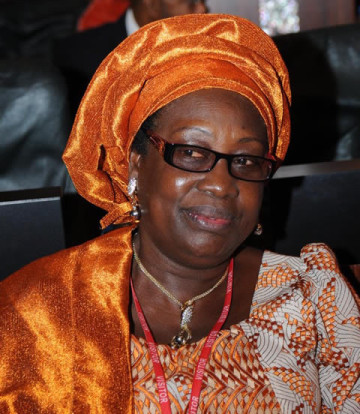FG to review environmental sanitation policy
The Federal Government has commenced the process of reviewing the National Environmental Sanitation Policy, the Minister of Environment, Mrs. Laurentia Mallam, has said.
According to her, the review is imperative because some information contained in the NES policy, which was developed and inaugurated 10 years ago, have fallen short of international best practices and are inhibiting sound public health.
Mallam spoke during the inauguration of an Inter-Ministerial Committee on the NES at the headquarters of the Federal Ministry of Environment in Abuja.
She said, “With the current trend of developmental challenges and advent of new areas of sanitation practice, it is absolutely imperative for Nigeria to review the existing NES policy in order to comply with international best practices and also to harmonise grey areas that are of concern to stakeholders for the overall maintenance of sound public health.
“The ministry is in the process of reviewing these documents to re-strategize on all goals and achievable implementation plans for national environmental sanitation.”
Mallam said it was sad that environmental sanitation across the country had been relegated to the background, and stressed that many families hardly complied whenever it was time for the regular monthly sanitation exercise as observed in many states.
She noted that the cross-cutting dimension of environmental sanitation issues and the magnitude of the problems called for collective responsibility for Nigeria.
“It is against this background that the existing membership of the standing inter-ministerial committee for the National Environmental Sanitation Day is being broadened to incorporate more stakeholders. The new members of the inter-ministerial steering committee on NES have been drawn from relevant federal ministries and extra-ministerial departments, donor agencies, the armed forces, para-military organisations, NGOs and bilateral organisations,” she said.
Mallam outlined the terms of reference of the committee to include the review of the 2015 NES policy document and its guidelines; development of strategic NES action plan and its implementation; plan and organise the NESD, which holds on June 28 of every year; and carryout other activities necessary for the smooth implementation of the NES policy and its guidelines nationwide.
The Permanent Secretary of the ministry, Mrs. Fatima Mede, said sanitation was fundamental in the fight against national poverty and preventable diseases.
She said this was why the international community in 2008 agreed to half the population of persons without access to basic sanitation by 2015 as part of the Millennium Development Goals.
“Also, history tells us that investments in basic sanitation can lift people out of poverty, ill-health and early death. But unfortunately, we are yet to achieve much for our country in terms of the above commitment though there are pockets of achievements here and there by individual states, persons and organisations,” Mede said.
PUNCH.


